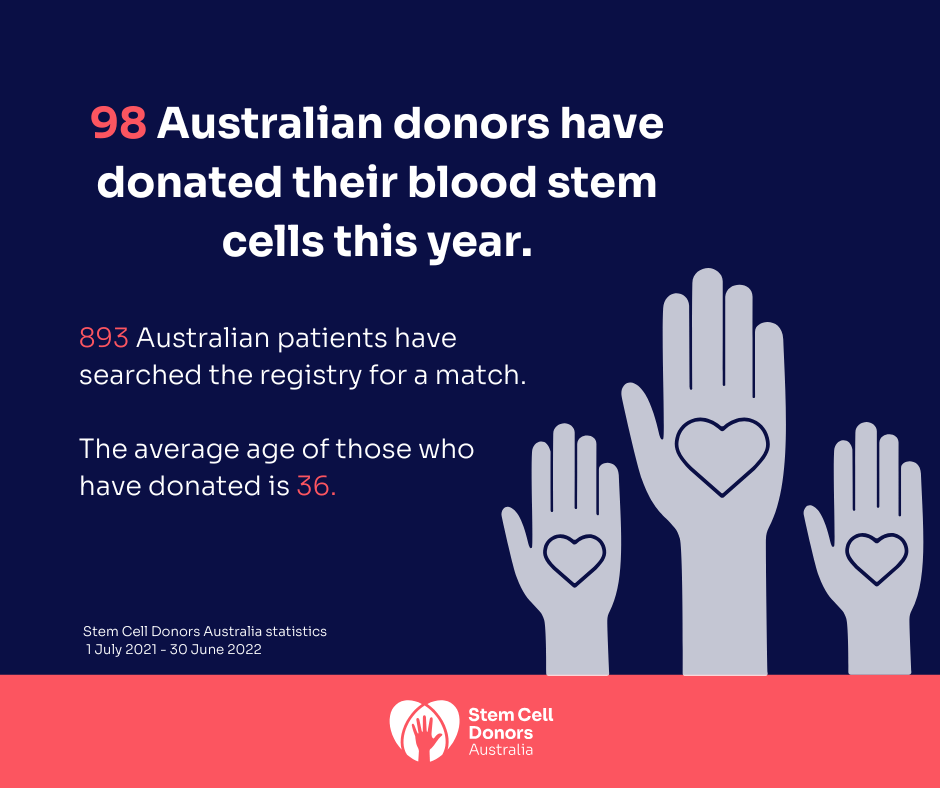
Right now, in Australia, 17,321 people are diagnosed with blood cancer each year; that’s roughly 47 people per day. Over 5,600 people lose their lives each year, making blood cancer one of the biggest causes of cancer death. Presently, over 110,000 people of all ages are living with blood cancer.
Blood cancer can have different treatment options depending on the diagnosis. For some, their only treatment, in hopes of curing them, is a stem cell or bone marrow donation. Some patients can reach this conclusion quickly. Others may have gone through a few different treatment options, like chemotherapy, before their medical team decide on a transplant. There are two types of blood stem cell transplants: autologous transplants, where the patient uses their own cells, and an allogeneic transplant, where someone like you donates stem cells to the patient. There are various reasons a patient might go down one transplant pathway over another.
There are two possibilities if an allogeneic transplant is selected for the patient. The patient could receive blood stem cells from a family member or a stranger; the latter happens in 70% of cases. The key to a successful transplant for a patient is finding a suitable donor match. This is why the registry holds so many potential volunteer donors. The matching process can hinge on finding a similar ethnic match, amongst other factors. Being on the registry can boost the potential to find a match, even more, rare matches.

During 2021 – 2022, 893 Australians with blood cancer searched the registry for a suitable match. Patients can search for donors directly with us, or they search the worldwide database (neither of which includes any identifying information about potential donors). A search will reveal potential donors within the Australian registry or across worldwide registries. A patient can match with, on average, 8 potential donors. Each donor undergoes a pre-screening process to determine the most suitable donor.
If you donated between 1 July 2021 and 30 June 2022, you are one of 98 Australian donors who has donated their blood stem cells. A gift gratefully received by a patient and their family. The average age of those who have donated is 36. We have donors donating in their 20s up into their mid and even late 50s. The bottom line is if you are the most suitable match for someone, you could be asked to donate.
To learn more about allogeneic transplants, visit Leukaemia Foundation
To find out what happens when you donate your stem cells visit the Donation process page.